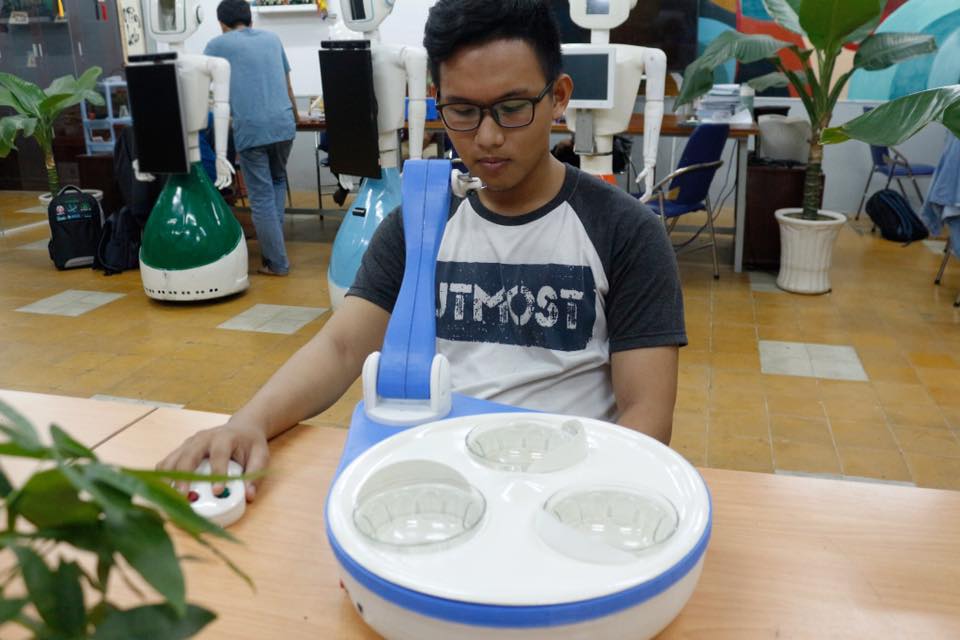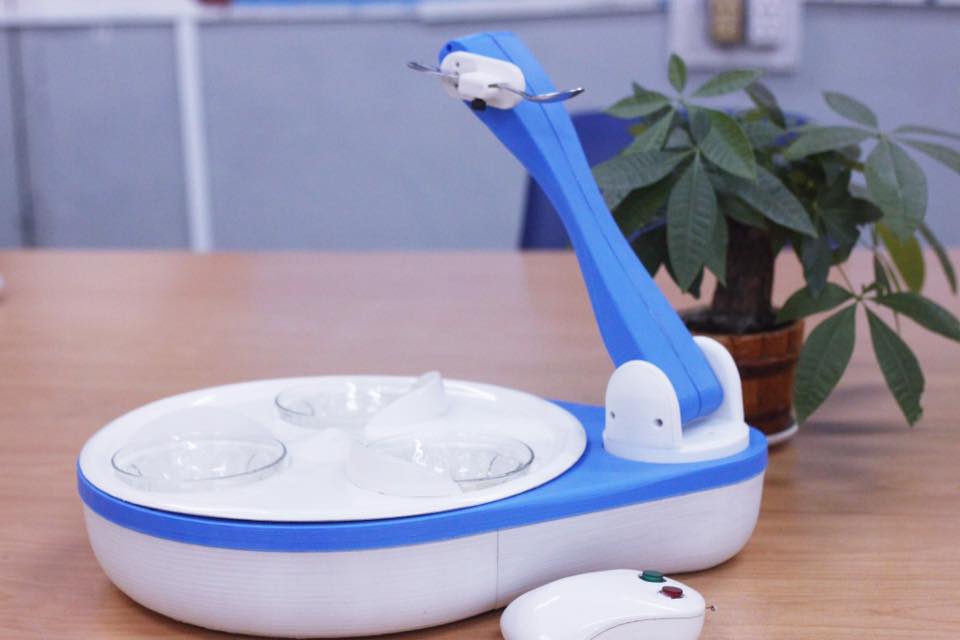The number of elderly people are growing very fast all around the world. As age increases the occurrences of disabilities are increasing which means they are not as active as young people and they require more assistance from their family members or their caregivers in places such as homes, nursing homes or hospitals. As the number of elderly is growing, the number of people living in long term care institutions are growing. According to the goals and standards of the health care system (WHO), this population should receive adequate service to be able to have a happy and healthy aging. The fast growing need for responding to these service requirements will have a great impact on the health care system. Nowadays many research groups are conducting their work to find different possible solutions for different kinds of people, environment and service by using the latest available technology.
- Mời bạn theo dõi các DỊCH VỤ KỸ THUẬT CÔNG NGHỆ CAO
 Many elderly people are struggling with accomplishing even the most frequent daily activities. Today, various intelligent, and non-intelligent, machines and robots have been developed to meet the needs of the elderly and people with upper limb disabilities or dysfunctions in gaining independence in eating, which is one of the most frequent and time-consuming everyday tasks. However, in almost all cases, the proposed systems are designed only for the personal use the Western food and nothing effort to design a device for Vietnamese food has been previously made. The elderly and their feeding requirements in environments such as nursing homes with many elderly residents dining together at least three times per day have not extensively been researched before. This, the unavailability of Vietnamese food feeding systems in the market, and the lack of related research motivated this project.
Many elderly people are struggling with accomplishing even the most frequent daily activities. Today, various intelligent, and non-intelligent, machines and robots have been developed to meet the needs of the elderly and people with upper limb disabilities or dysfunctions in gaining independence in eating, which is one of the most frequent and time-consuming everyday tasks. However, in almost all cases, the proposed systems are designed only for the personal use the Western food and nothing effort to design a device for Vietnamese food has been previously made. The elderly and their feeding requirements in environments such as nursing homes with many elderly residents dining together at least three times per day have not extensively been researched before. This, the unavailability of Vietnamese food feeding systems in the market, and the lack of related research motivated this project.  The aim of the thesis has been to make individuals with disability in arms, who have been fed during meals, completely or partially independent by use of the self-feeding device. It describes a self-feeding system designed to increase the independence of a person who is unable to use their arm for self-feeding. It is FeedBot, a highly integrated and compact service robot with manipulator and food index tray. FeedBot is an intelligent device for disabled people in the home health care is self-feeding manipulator especially to Parkinson patients, who have difficulty to feed the foods while eating. In particular, FeedBot combines the best of available technology including a 2 DOF light-weight manipulator and an index tray. It operates with a food tray and a manipulator to bring the foods from tray and feed to disabled people as Parkinson patients. The self-feeding system is operated autonomous by itself and sent food’s data and relative information to monitoring computer based on Internet. Besides, the tool of management can analyze the data according to the nutritional standards, and controller control movements of manipulator and automation tray based on health situation and needs of patients.
The aim of the thesis has been to make individuals with disability in arms, who have been fed during meals, completely or partially independent by use of the self-feeding device. It describes a self-feeding system designed to increase the independence of a person who is unable to use their arm for self-feeding. It is FeedBot, a highly integrated and compact service robot with manipulator and food index tray. FeedBot is an intelligent device for disabled people in the home health care is self-feeding manipulator especially to Parkinson patients, who have difficulty to feed the foods while eating. In particular, FeedBot combines the best of available technology including a 2 DOF light-weight manipulator and an index tray. It operates with a food tray and a manipulator to bring the foods from tray and feed to disabled people as Parkinson patients. The self-feeding system is operated autonomous by itself and sent food’s data and relative information to monitoring computer based on Internet. Besides, the tool of management can analyze the data according to the nutritional standards, and controller control movements of manipulator and automation tray based on health situation and needs of patients.
- Mời bạn theo dõi các DỊCH VỤ KỸ THUẬT CÔNG NGHỆ CAO

Có thể bạn cũng quan tâm:
- 300 dự án tạo mẫu nhanh in 3d, cnc xốp và vẽ màu, sơn màu hoàn thiện sản phẩm
- 105 dự án thiết kế kiểu dáng công nghiệp (Industrial Design – R&D)
- 400 dự án ứng dụng đúc khuôn Silicon (Silicon Mold Vacuum Casting)
- 1005+ Dự án Scan 3d (quét 3d) và thiết kế sản phẩm mỹ thuật, kỹ thuật đã thực hiện
- 999+ Dự án điêu khắc, CNC sản phẩm xốp lớn, nhỏ đã thực hiện
- 688+ dự án dịch vụ in 3d trong suốt cao cấp đã thực hiện
- 861+ dự án dịch vụ in 3d kim loại cao cấp đã thực hiện
- 299+ dự án dịch vụ in 3d của chúng tôi đã thực hiện và những kinh nghiệm

